
What is the Anterior Cruciate Ligament:
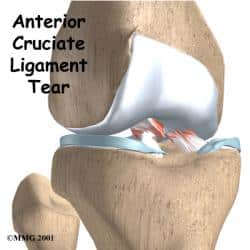
The ACL is one of the four major ligaments inside the knee. The ACL is one of the most injured ligaments in the knee. It is responsible for maintaining stability of the knee during certain sporting activities. The ACL or anterior cruciate ligament is necessary for most people to participate in sports involving.
- cutting
- pivoting
- turning or
- twisting
Why Does the ACL Tear?
Most ACL tears occur as the result of a non-contact injury. ACL tears occur when an athlete tries to change direction rapidly, or come down on their leg at an unusual angle. The athlete will notice that the knee twists and pops. Most patients in my office with an ACL tear will note that they pivoted, twisted, or tried to rapidly change direction and then felt a pop. What follows is pain, difficulty walking, and significant swelling.
How do I know if I have an ACL tear?
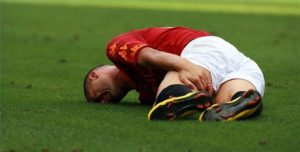
Do I need surgery to repair my ACL tear?
Not everyone who tears their ACL requires a reconstruction . Elite athletes, or even weekend warriors who have a persistent feeling of instability — a sense that the knee is loose — will either require an ACL reconstruction or they will need to try a brace or simply give up the activity that leads to the feeling of instability. Many adults with ACL tears lead active lives without any symptoms, pain or a feeling of instability.
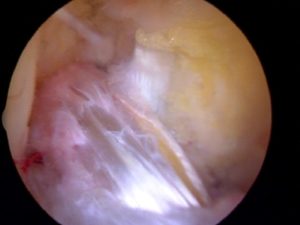
Are all ACL tears Repaired or Reconstructed?
There’s no question that Derrick Rose and Mariano Rivera will have their ACL tears reconstructed. Other adults have choices as I mentioned above. What about ACL tears in children ? As our children become more and more active, we are seeing more and more ACL tears in them. A parent’s notion is to avoid surgery if their youngster tears their ACL. Recent scientific studies show that children are at very high risk of developing secondary injuries such as a meniscus tears . We know from the MRI results that Mariano Rivera already has a meniscus tear, which commonly tears when the ACL goes. These secondary injuries can lead to arthritis, so it is important that you have a stable knee to minimize the risk of further injury down the road. Children will not sit on the bench … nor can we tell them not to run around — so many academic Sports Medicine Orthopedic Surgeons will recommend early surgery for their ACL tear in children to minimize the risk of them incurring a secondary injury such as a meniscus tear.
How is An ACL Surgery Performed?
The way we perform ACL reconstructions or surgery to repair the Anterior Cruciate Ligament today is far different from the methods utilized in the past. The procedure we perform today is called an Anatomical ACL Reconstruction — from a surgical prospective it is very different than the procedure we performed for decades. The goal of the surgery today is to reconstruct your ACL so that is placed in exactly the same position your old one was. An important caveat …. if you are considering ACL surgery, make sure your surgeon is well versed in the Anatomical Technique.
How long will it take to recover from ACL surgery?
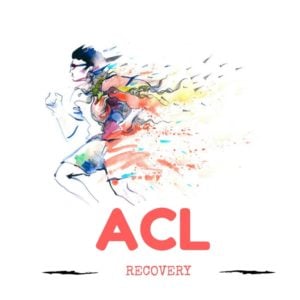
The ACL that we placed in your knee will go through a process of regeneration or reorganization that will cause it to be very weak compared to a normal ACL. That weakness will persist for at least 8-12 months or longer. The longer you wait before returning to sports, the less likelihood there is that you will suffer a new tear. In addition, there are numerous milestones you must achieve with your physical therapist or athletic trainer before you will be allowed to return to sports after ACL surgery.
Recommended Reading:
Anterior Cruciate Ligament Tears
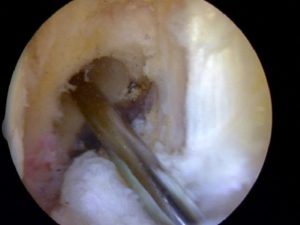


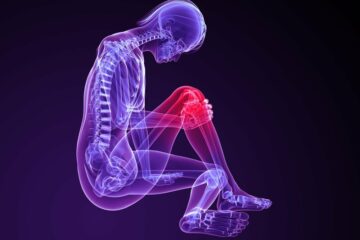
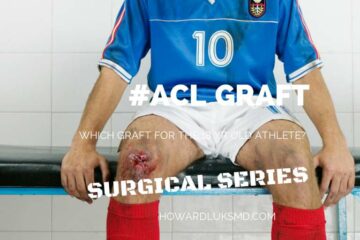
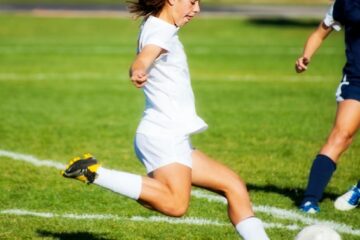
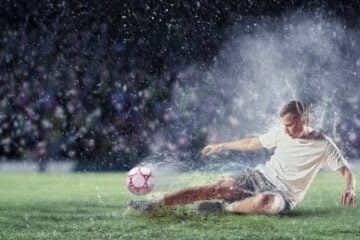








Thank you so much for such a great information regarding the knee injuries and your approach to each injury. I really enjoy your site…
Please comment on the type of graft each chose. Thanks.
Professional athletes are usually indicated for bone=patella tendon – bone grafts.